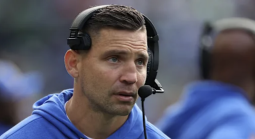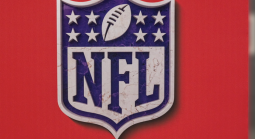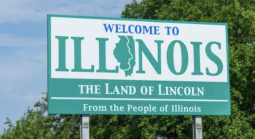US Casino Giants Mull Online Gaming Moves

The chief executive of the American Gaming Association (AGA) now sees a majority of the world's largest casino companies moving towards a partial embrace of internet gambling. Ahead of a meeting this week in Vegas, Frank Fahrenkopf outlined his powerful trade group's evolving stance on online wagering, as well as the economic challenges the gaming industry is now grappling with.
Dozens of gambling executives and lawyers from across the US will gather in Las Vegas this week to begin hammering out a common position on internet wagering. On the eve of the conclave, Fahrenkopf told GamblingCompliance.com he believes a majority of members might support some level of internet gambling, with the big question now being whether the states or the federal government should have oversight.
"I think a majority would probably be supportive of some internet gambling architecture, whether or not they would support a federal solution,'' Fahrenkopf said.
Fahrenkopf's comments are the latest sign the AGA, which was once adamantly opposed to online betting, may be starting to revamp its stance amid a flurry of legislative activity in Washington on the hot-button issue. In a key recognition of the importance of the issue to the future of the global gaming industry, the AGA's board voted in September to form a study group to review the matter.
The deliberations come amid a cascade of gloomy news about the economy and stock-market turmoil. In remarks on the economic challenges facing the industry, Fahrenkopf said he foresees gaming companies having a difficult time expanding - at least their land-based operations - in the current environment, despite the growing need of state and local governments for additional revenue.
"What this really is is a capital crisis,'' Fahrenkopf said. "Banks are not lending. The question is where are these companies going to find the capital to build?''
The AGA's warming towards online wagering also comes amid signs that the campaign to repeal the 2006 crackdown on internet gambling is picking up a degree of traction in Washington. US Representative Barney Frank, chair of the powerful House Financial Services Committee, has pushed aggressively for a federal system of regulation.
In a first step, Frank succeeded in reporting out a bill from his committee in the waning weeks of the last congressional session that would have had federal regulators, among other things, engage in a study of the economic impact of enforcing the controversial Unlawful Internet Gambling Enforcement Act (UIGEA).
Meanwhile, Nevada US Representative Shelley Berkley has proposed a study of whether internet gambling could be effectively regulated and kept out of reach of minors. While some AGA members are skeptical about Frank's bill, Berkley's study proposal won the group's backing.
In further developments, advocates for the legalization of online poker rolled out some heavy political artillery of their own, hiring former Republican Senate heavyweight Alfonse D'Amato to chair their effort.
But Fahrenkopf and the AGA are betting that these proposals are just a prelude to an even more intense debate on the issue in the months and years ahead. Budget pressures are likely to force federal lawmakers to look for new sources of revenue, with online gaming a tempting target. House Democrats, in particular, have adopted a 'pay-as-you-go' approach that requires members to lay out how they would pay for new spending proposals.
"I suspect in the next Congress there will be a lot of activity," Fahrenkopf said. "With the budget situation the way it is, you can be sure that members of Congress will be looking for new sources of revenue."
Still, the AGA may have its hands full coming to a common agreement, with significant differences in how some casino companies view the prospect of allowing online gaming. While a majority may favor some "internet gambling architecture", Fahrenkopf believes some would like to see a federal approach, while others are more comfortable leaving the issue in state hands.
Harrah's Entertainment, the world's largest gaming company and key AGA member, is aggressively out front in favor of a federal regulatory structure similar to that proposed by Frank. About a third of the AGA's members, like Harrah's, support a federal approach. Another third would like to see states take the leading role, as they have already done in jurisdictions with casino gambling, such as Nevada and New Jersey. The final third, however, are opposed to any legalization of internet gambling at all, he said.
"The idea is to let everyone come to the table,'' Fahrenkopf said of this week's meeting.
Still, there may already be a possible model in place for internet gambling legalization, one that a number of AGA members might be comfortable with, Fahrenkopf indicated. That is an existing federal act that allows horse racing venues to offer online wagering, provided their respective state governments have given the green light. Such a state-based approach, in turn, has deep roots in the industry, which has historically been suspicious of federal involvement.
There are also practical reasons for such a stance as well. State governments, such as Nevada and New Jersey, already have respected casino regulatory operations. The US Treasury Department, which would oversee internet gambling under Frank's proposal, has no experience regulating the gaming industry, Fahrenkopf said.
"The overarching historical view has been the federal government has no place in this,'' he said. The concern has been that any federal involvement would be simply the "camel's nose under the tent.''
The AGA's new openness to internet gambling has in fact been more of a slow evolution. A key moment came during MGM Mirage's short-lived 2002 foray into internet gambling, when it took part in a venture based on the Isle of Man.
That venture by MGM Mirage, another influential AGA member, while it lasted only a few months, demonstrated that minors could be kept out and payments blocked from jurisdictions where internet gambling is banned, he said. The downfall was that the technology then was simply too cumbersome, with 20 minutes for gamblers to get through the screen and begin wagering, according to Fahrenkopf.
However, skeptical members of Congress need to be won over. And independent study, such as that called for under Shelley's bill, is what is needed, Fahrenkopf suggested.
"It doesn't do much good for us to tell legislators the technology exits," Fahrenkopf said. "You have to get independent verification.''
Still, any predictions about how internet gaming proposals will fare in the next Congress have to be hedged given the uncertainty hanging over the US economy and the political scene in Washington.
"I don't know when we hit bottom and what it looks like,'' said Fahrenkopf, former chairman of the Republican National Committee. "I don't know what Congress will look like."
----
Scott Van Voorhis, www.gamblingcompliance.com













